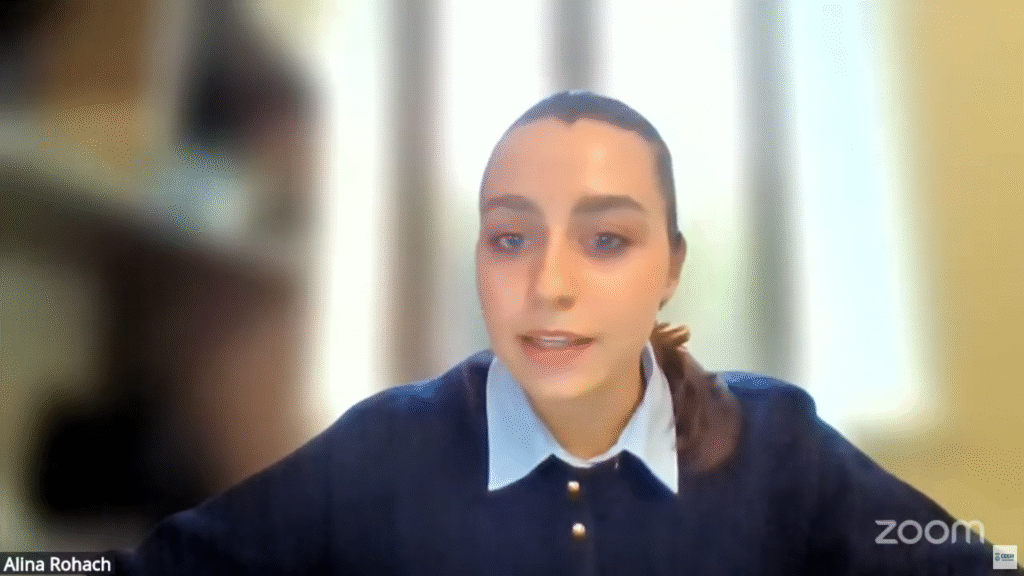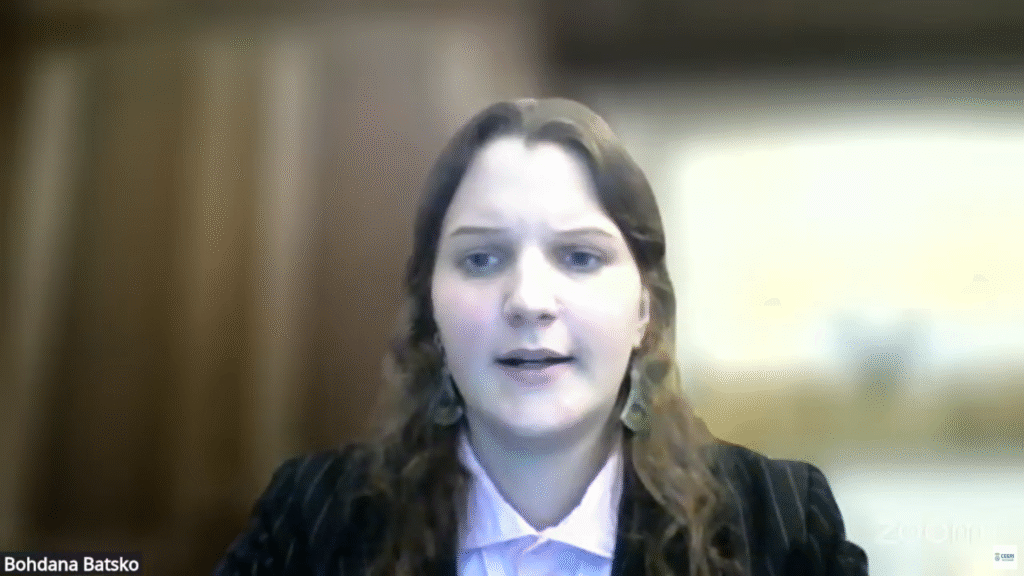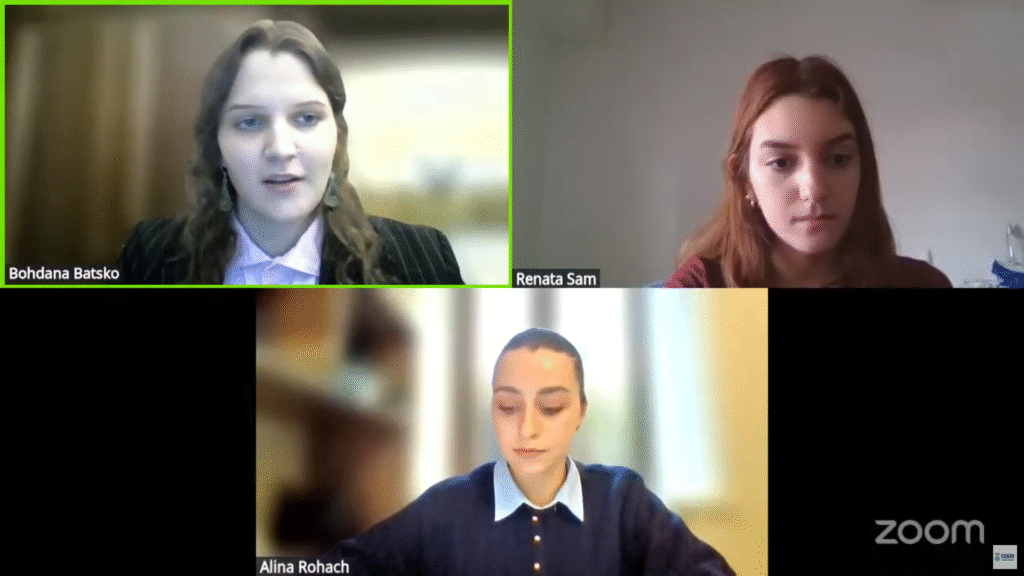On October 1, the Transatlantic Dialogue Center (TDC) and the Center for Strategic Studies of International Relations (CEERI) co-hosted a public discussion on the ongoing Russia’s war against Ukraine, examining its roots, global implications, and the conditions for a just and sustainable peace. The event was moderated by Renata Sam Borghetti, a student and thesis writer in International Relations at USAL, and featured two Ukrainian political analysts from TDC’s Spain and Latin America Cooperation Program: Alina Rohach, Project manager, and Bohdana Batsko, Project assistant.


Opening the discussion, the speakers emphasized that the Russia’s war against Ukraine did not begin in 2022 but in 2014, with the occupation of Crimea and the onset of hostilities in Donetsk and Luhansk. As Rohach noted, Russia’s propagandistic narratives — about an alleged internal crisis, the “protection” of Russian speakers, or claims of a “one people” — were deliberately constructed to disguise aggression and undermine Ukraine’s legitimacy. She called on the audience to maintain a human perspective, reminding that every political decision and legal argument translates into concrete consequences for Ukrainian families, schools, hospitals, and lives.
Batsko expanded on the broader consequences of the war, underscoring how Russia’s actions challenge the international order and expose weaknesses in international institutions such as the UN Security Council. The erosion of collective mechanisms for accountability, she argued, risks normalizing the use of force as a policy instrument and encouraging similar behavior elsewhere. The war, therefore, represents not just an attack on Ukraine but a direct assault on the international system founded on law and sovereignty.
The panel also discussed the parameters of a just peace. Rohach highlighted that any settlement rewarding aggression or freezing current lines of occupation would only institutionalize future instability. Quick solutions detached from international law, she warned, would merely delay the next escalation.
Turning to reconstruction, Batsko described Ukraine’s recovery as an inherently political process tied to its European integration path. Rebuilding Ukraine goes beyond restoring physical infrastructure — it requires reforming governance, strengthening institutions, and rebuilding public trust. She emphasized the importance of decentralization, transparency, and inclusion, including the reintegration of displaced persons and the protection of people with disabilities.

The speakers concluded that cooperation with partners beyond Europe — particularly in Latin America — plays a vital role in defending a rules-based international order. Joint initiatives with institutions like CEERI help broaden understanding of Ukraine’s struggle, counter disinformation, and foster solidarity among nations committed to sovereignty and democracy.
The Transatlantic Dialogue Center thanks CEERI, Guillermo Ospina Morales, Gastón Zentner, Renata Sam Borghetti for their cooperation and insightful discussion. The event reaffirmed that Ukraine’s fight for freedom is inseparable from the global struggle to uphold the principles of international law and human dignity.
Watch the full conversation via the link.